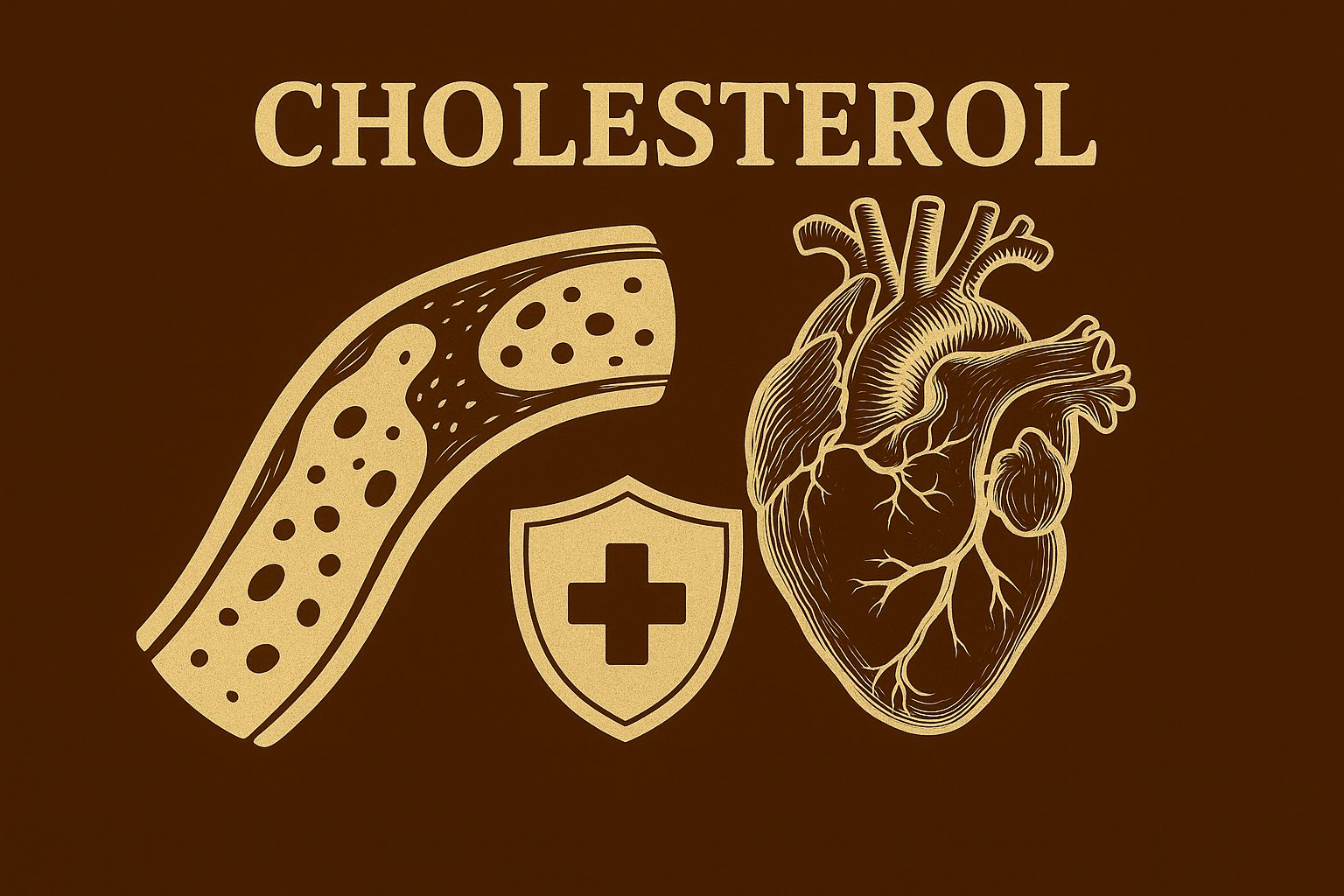Issue #5: August 11, 2025

🔍 The Cholesterol Myth: What’s Actually Killing Us
We’ve been told for decades to fear cholesterol.
Like every egg yolk is a heart attack waiting to happen.
But here’s the thing: nearly half of all heart attacks occur in people with normal LDL levels. And I’ve had enough casual conversations with friends and family to know that statins are being handed out way too often, sometimes based on a single number on a blood panel. It’s time to challenge the narrative.
💥 The Real Stats Behind Cholesterol
A 2009 study in the American Heart Journal analyzed over 136,000 heart attack patients:
75% had LDL below 130 mg/dL
Nearly 50% were below 100mg/dL — what’s considered “optimal” by the American Heart Association
If LDL is the villain, why are so many heart attacks happening in people with “healthy” levels?
🛡️ Cholesterol Isn’t Just Safe, It’s Essential
Cholesterol builds every cell membrane in your body. It powers your brain, helps produce hormones, and is a key ingredient in vitamin D synthesis.
Your brain, just 2% of your body weight, holds 25% of your total cholesterol. That’s no accident.
Even LDL, the so called “bad” kind, plays a role in immune defense by neutralizing bacterial toxins (Nature Reviews Immunology, 2015). And longevity research keeps flipping the script:
A 2023 GeroScience study found those with higher total cholesterol were more likely to reach 100
In Sardina (2025), nonagenarians with LDL ≥130 mg/dL had better survival odds
🧬 Your Body Regulates Cholesterol, Not Just Your Diet
Here’s what most people (and many doctors) miss: Your liver makes the majority of your cholesterol. It also adjusts its production based on what you eat.
So if you eat more cholesterol (eggs, shrimp, etc.), your body makes less. If you eat less, your body makes more. This homeostatic loop is why dietary cholesterol usually impacts blood levels by just 10-15%.
The bigger drivers? Genetics, saturated fat, and fiber. Not that omelet you had this morning.
💊 Statins: Miracle Drug or Misused Crutch?
Statins are the most prescribed drugs in America.
Yes, they lower LDL by inhibiting its production in the liver. And yes, they reduce heart attack risks by ~22% per 1mmol/L drop (The Lancet, 2010).
But here’s the nuance:
In people without heart disease, that reduction often translates to just a 1% absolute risk reduction
Side effects include muscle pain, fatigue, and increased diabetes risk (The Lancet, 2011; Johns Hopkins, 2024)
The real issue? Too often, doctors prescribe statins based on one number, LDL, without looking at the full picture: inflammation, insulin resistance, metabolic health, lifestyle.
That’s not practicing medicine. That’s playing pharmacist.
🍭 Sugar: The Real Cardiovascular Wrecking Ball
A 2014 Jama Internal Medicine study found that people who got more than 25% of their calories from added sugar had 2.5x the risk of dying from heart disease.
Why? Because sugar:
Raises triglycerides
Lowers HDL
Feeds chronic inflammation
All of which are stronger predicators of heart disease than LDL alone (JAHA, 2020).
🧪 The Tests That Actually Matter
If your doctor is quick to prescribe a statin, ask them if they’ve looked at:
CRP (inflammation)
HbA1c (blood sugar)
Homocysteine (inflammation and vascular health)
Triglycerides & HDL (actual risk indicators)
LDL particle size (small, dense = worse)...Journal of Clinical Lipidology, 2014
Total LDL alone? That’s like judging a book by its cover.
✅ The Big Picture
Cholesterol is not the enemy
Sugar and inflammation are far more dangerous
Satins help, but they’re overprescribed
Ask better questions before you swallow the pill
Until next week. Stay vital.
-Jordan Slotopolsky
Looking for unbiased, fact-based news? Join 1440 today.
Join over 4 million Americans who start their day with 1440 – your daily digest for unbiased, fact-centric news. From politics to sports, we cover it all by analyzing over 100 sources. Our concise, 5-minute read lands in your inbox each morning at no cost. Experience news without the noise; let 1440 help you make up your own mind. Sign up now and invite your friends and family to be part of the informed.
🧠 References
American Heart Journal, 2009: LDL levels in 136k heart attack patients
GeroScience, 2023 & Sardinian Longevity Cohort, 2025: Higher LDL linked to longer life
Nature Reviews Immunology, 2015: LDL’s immune function
The Lancet, 2010 & 2011: Statins efficacy and side effects
Johns Hopkins Medicine, 2024: Statins and diabetes risk
Circulation, 2019: Dietary cholesterol’s modest impact
Am J Clin Nutr, 1992: 100mg cholesterol → ~2.2 mg/dL serum rise
Journal of Clinical Lipidology, 2015: Particle size matters
JAMA Internal Medicine, 2014: Sugar & heart disease
JAHA, 2020: Triglycerides & inflammation vs. LDL
Disclaimer:
The content provided in this newsletter is for informational and educational purposes only and is not intended to be a substitute for professional medical advice, diagnosis, or treatment. Always seek the advice of your physician or other qualified healthcare provider with any questions you may have regarding a medical condition. Never disregard professional medical advice or delay in seeking it because of something you have read in this newsletter. The information provided does not constitute the practice of medicine or any other professional healthcare service.



